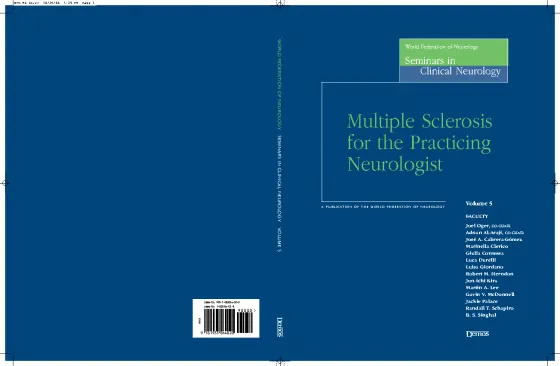Document Download: Multiple Sclerosis for the Practicing Neurologist

Description:
The fifth course addresses the important area of multiple sclerosis.
Released: 4 Dec 2007
Published: 8 Jul 2016
Preface
Over the last 15 years, interest in multiple sclerosis (MS) has increased probably more than for any other neurologic disorder. This arises from the simultaneous occurrence of magnetic resonance imaging (MRI) technology that has permitted clinicians to image the pathologic process and the development of therapeutical agents that have brought hope to patients. The neurologist is now better able to diagnose, follow, and treat these young patients compared to only accompanying the patient in the course of their disease a couple of decades ago. However, the progress in diagnosis and therapy has been overemphasized by some (with encouragement from the pharmaceutical industry), and many voices are beginning to call for more measured statements of success. It is unconscionable to ignore the hype that has recently accompanied these new discoveries in the diagnosis and treatment of MS.
Seminars from the World Federation of Neurology (WFN) focus on the needs of neurologists practicing in developing countries. At a time when MS is shown to be present all over the world and multiple reports suggest its increasing frequency in developing countries, it is essential that physicians in less-developed countries be wary of following the seductive attraction of new technologies being emphasized in the developed world.
This book places the emphasis on the clinical issues faced by neurologists practicing in developing countries when dealing with MS patients. We strongly feel that the diagnosis of MS is possible and acceptable without the use of high-cost confirming tests such as MRI. In parallel, treatment options not involving excessively costly disease-modifying drugs have been stressed. Although some of the immunosuppressants have not had a complete endorsement by evidence-based medicine, the association of high-dose steroids for relapses and long-term "soft" immunosuppressants such as azathioprine may very well be more effective than generally recognized and probably not much less effective than are disease-modifying drugs. They are certainly less costly, although a stable view of the cost–benefit comparison has not been reached at this time.
This book represents a high level of cooperation between many different people from different origins. It is an example of international cooperation across continents, countries, and religions.
Joel Oger, MD, FRCP, FAAN
Adnan Al-Araji, MB ChB, FRCP (Glasg.)







